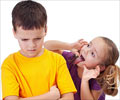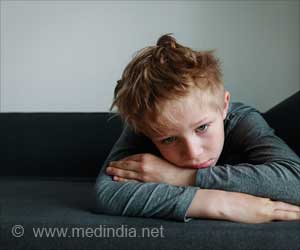Children who had high-intensity symptoms as preschoolers were likely to have conduct disorder.

“Previously, we did not understand the empirical differences between normal disruptive behaviors in preschoolers like temper tantrums and behaviors that signal problems. If you went to your pediatrician and said, ‘My 3-year-old is having tantrums,’ the pediatrician wouldn’t tell you to see a psychiatrist,” said Joan L. Luby, MD, senior investigator, professor of child psychiatry.
Although there was overlap between healthy young children and their peers who had conduct disorder, the researchers found that those who exhibited high-intensity defiant behavior, aggression toward people or animals, high-intensity destruction of property, peer problems and deceitfulness, including stealing, were likely to have conduct disorder.
“We characterize a symptom as high-intensity when it’s really ‘high-pitched’ so just how severe the anger is,” Luby said.
Other factors that would qualify a symptom as high-intensity would hinge on how frequently the behavior occurs and the context in which it occurs. A high-intensity symptom is one that is very acute or severe, occurs over a long duration of time and happens in a number of different contexts.
“Children who had high-intensity symptoms as preschoolers were likely to have conduct disorder. And those symptoms also tended to predict conduct disorder when they reached school age” said first author Ji Su Hong, MD.
“That’s about one child per preschool class, and conduct disorder is a serious problem when it affects a child under 10 because early-onset problems are more likely to persist as the child grows up,” Hong said.
Further, about half had a history of abuse or neglect, 43 percent came from intact families, meaning more than half were either from single-parent homes or didn’t live with either parent; and more than half had been diagnosed with preschool depression.
“In young children, violent and destructive behavior that’s deliberate really seems to be a key warning sign,” Luby said.
Hong and Luby believe that the best chance young children have to avoid recurring problems is early diagnosis and treatment.
Source-Medindia
 MEDINDIA
MEDINDIA




 Email
Email




